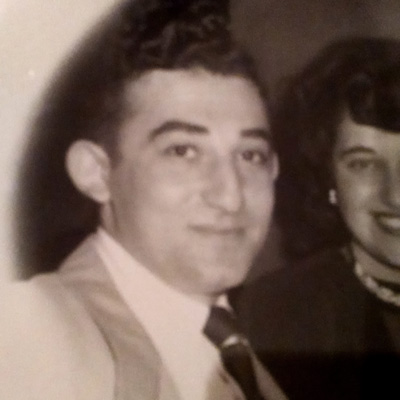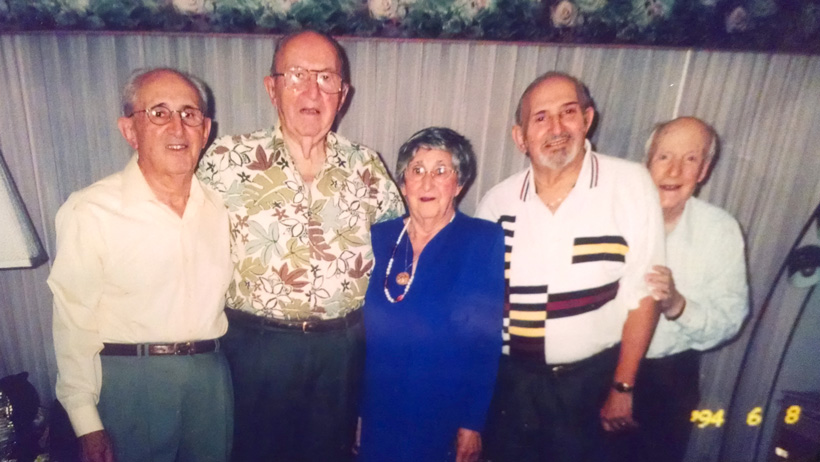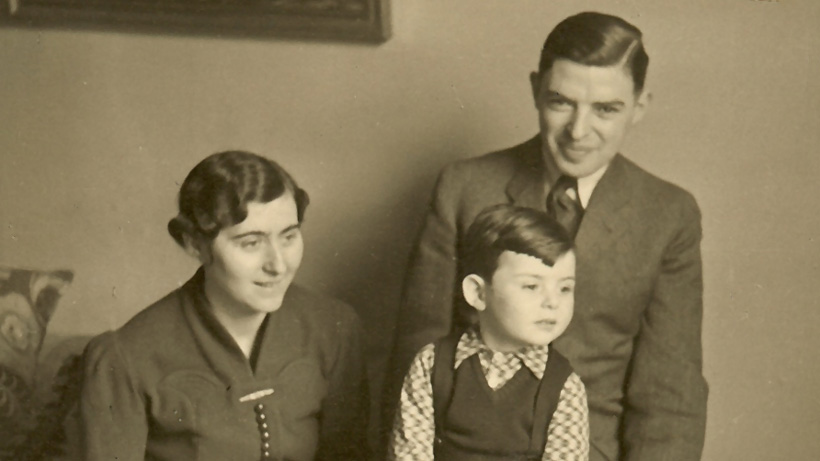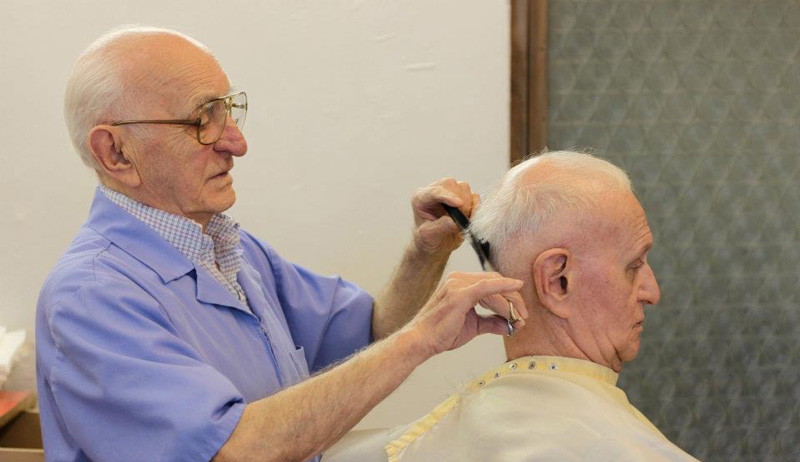My grandfather's Judaism called to him when he was 16. It was 1942. His family had emigrated to America decades earlier and he was living the American Dream. They lived in a spacious apartment in the Bronx alongside Pelham Bay Park. He attended public school, hardly ever went to synagogue and was happily assimilated. Yet when relatives told stories they'd heard of Jews being rounded up and killed in the very European towns they had left behind, something in him stirred.
He tried to enlist in the Army, but was turned away due to his age. A few months later he turned 17 and tried again, this time in the Navy. They didn't check his age quite as carefully and he was selected for the Underwater Demolition Teams, the forerunner of today's Navy Seals. He carried out missions from submarines in the waters of Northern Europe and swam first onto the beach at Normandy to blow up the barricades that prevented the landing craft from deploying troops.
My grandfather likes to tell a story from after Normandy when he met a captured German officer aboard an aircraft carrier. The officer was laughing and smoking with some troops, acting as if he was "one of the guys." When he asked my grandfather why he was so sour, my grandfather replied in his broken Yiddish, "Ich bein a Juden" ("I am a Jew"). He says the officer's face turned dark and he didn't say another word.

My other grandfather, on my mother's side, heard his Judaism call to him when he was 12. He was living in a very small rural village in Lithuania. For months, his family had heard of round-ups of Jews -- and they were coming closer to their village. When they finally came, they were told by the S.S. that they would be re-settled, but my grandfather's family chose otherwise -- they escaped into the surrounding forest.
For four years they lived in the wilderness, facing hunger every day, frostbite in the winters and surprise raids by German units combing the forest for them. Two of my grandfather's siblings fought with the partisans, and one was killed shortly before the war's end, betrayed by her Polish compatriots. My grandfather lost siblings, nieces, nephews and friends -- and his youth.
He tells a story of smuggling food into the forest that he'd stolen from an outlying farm. He was returning alone with his bounty late at night when a pack of wolves began stalking him. He reached into his pocket and grabbed his grenade, the only weapon he had, believing it would be better to die like that than to be eaten by wolves. It was then, he says, that he felt the hand of God on his shoulder, and he knew that he would survive the night, and the forest.
Most of his family survived the forest and eventually came to the U.S., but one family member who did not was his sister, for whom I was named and whose name I carry proudly today.
Both of my grandfathers' stories weigh heavily on my heart and mind. I constantly think about how we, in this generation can perpetuate their stories and achievements, as well as the memories of those we have lost.
I have chosen a career in the Jewish world to try and do what I can to strengthen our community, ensure that we have opportunities to remain a growing, vibrant and strong Jewish people. My previous work at the JDC brought me great pride; I was working for an organization that was instrumental in helping my grandfather, as well as millions of others, after the war ended. And now, living in Chicago with my husband and working at JCC Chicago, I am impressed with the breadth of opportunities available to families, young adults and children here. We are living in a strong community where we can be proud of our Jewishness and have spaces to celebrate it -- something that previous generations were not always able to experience.
Our Judaism calls to each of us. Sometimes it is a call of conscience or a call for help; sometimes it is a call to life or a call to spirit; sometimes it is a shout and sometimes a whisper; sometimes we must seek it out, and sometimes it seeks us out, whether we want it to or not.
The question for each of us is, how will we answer when it does?






.jpg)



